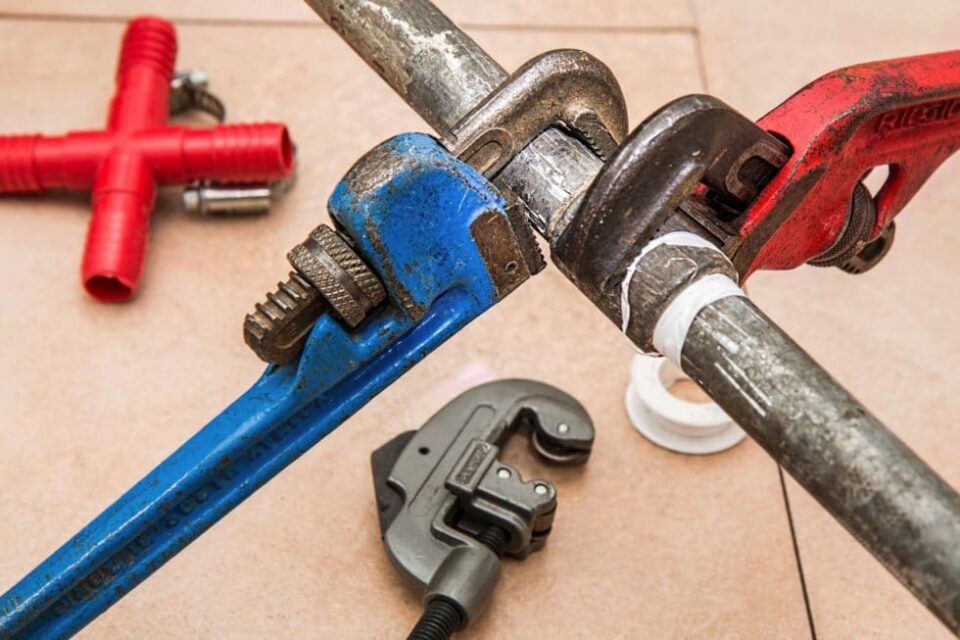When servicing homeowners, plumbers need the right tools of the trade and a specific skill set to provide a service they can be proud of. Whether you are a commercial or residential plumber, there are many challenges could face. From working in small spaces to navigating safety hazards, there are some key tools you’ll need to do your job efficiently.
Tubing tools
Working with plumbing means you’re likely to encounter all manner of leaky pipes and worn-out pipe bends. This can seriously weaken the structural integrity of a pipe system and lead to water damage across the rest of the property. Untreated water damage can lead to more complex plumbing issues.
Tubing cutters and benders are key to making pipes fit the task at hand without distortion or excessive strain. These tools offer a clean finish when cutting heavy-duty, rigid materials such as copper, stainless steel, or plastic.
Sealants
Keeping bathrooms and other spaces waterproofed is a key aspect of many plumbing jobs and a good-quality sealant is often the best tool for the job. You need to source the right sealant with the exact characteristics required for your task, so you’ll need to choose between acrylic, silicone, and MS polymer products.
It’s also worth keeping sealant removers like these on hand if you’re working on an old job. Due to the build-up of moisture and soap scum, kitchens and bathrooms will need old sealants to be removed before getting started on the new task.
Wrenches
Without a wrench set, a plumber would struggle to do their job efficiently. These tools are crucial for tightening or loosening bolts, fixings, and pipes and are available in a variety of shapes and sizes.
Common wrench types include:
- Basin wrenches – designed with a long handle for reaching behind sinks
- Faucet valve-seat wrenches – for the removal of old, stubborn seals
- Allen wrenches – used to secure or loosen a range of plumbing fastenings
- Pipe wrenches – these are heavy-duty tools reserved for gripping and turning pipes and fittings
Cleaning tools
Plumbing can be messy, so it’s important to have the right cleaning equipment to tidy and sanitise your workspace before and after you’ve done the job. Clogged drains can reduce the flow of water, resulting in a mouldy smell and a build-up of pathogens that can lead to illness or allergies.
Drain-clearing chemicals and tools such as plungers, wire brushes and snakes (long, wire, tube-like tools) are ideal for removing blockages.
Safety wear
There are many health and safety risks involved in plumbing so it’s important to take the appropriate precautions to safeguard health and well-being. The chemicals involved in plumbing jobs can be irritating to your eyes, skin, and lungs but wearing PPE such as safety goggles, thick gloves, and face masks can mitigate this risk.
Hard hats and water work clothes ensure the protection of their wearer when working in cramped or damp conditions.

